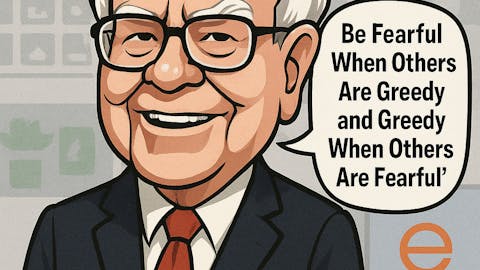We came across a bullish thesis on ICON Public Limited Company (ICLR) on Substack by DeepValue Capital. In this article, we will summarize the bulls’ thesis on ICLR. ICON Public Limited Company (ICLR)’s share was trading at $145 as of April 28th. ICLR’s trailing and forward P/E were 15.22 and 10.20 respectively according to Yahoo Finance.

A research scientist in a lab coat examining data on a computer screen demonstrating the trials and development of new drugs for CNS diseases.
ICON, a Contract Research Organization (CRO), is a key player in the drug development process, offering services to pharmaceutical companies that need to conduct clinical trials. Instead of managing these complex and costly processes in-house, drug companies outsource them to firms like ICON, which handles everything from patient recruitment to regulatory compliance. ICON’s role is integral to bringing new medicines to market, without owning the drugs themselves, but instead running the operations that make it all possible. This model aligns well with my investment strategy, as I focus on service businesses that offer scalability, recurring revenue, and strong returns on capital.
The company’s stock has seen a dramatic decline, down over 60% since July 2024, despite maintaining a robust backlog of $25 billion, which remains near all-time highs. Historically, ICON has achieved impressive returns on invested capital (ROIC) and returns on capital employed (ROCE) of around 15%. This decline in stock price presents an interesting opportunity, particularly when considering the growing long-term tailwinds in the pharmaceutical sector. With over $200 billion in annual drug revenue at risk due to a patent cliff by 2030, pharmaceutical companies are aggressively rebuilding their drug pipelines, which requires more clinical trials. Additionally, aging populations and the demand for chronic and complex treatments further drive this need for trials, making ICON’s services more essential.
Despite the recent downturn, the shift toward increased R&D spending, AI-driven drug discovery, and global diversification of trials point to a structural growth opportunity for ICON. The demand for clinical trials is set to continue expanding, and ICON doesn’t rely on the success of any single drug; it simply needs more trials to be conducted, and all signs suggest this will be the case across the industry.
However, there are still key risks and unknowns that need to be addressed. These include the validity of ICON’s $25 billion backlog, executive incentive alignment, and whether ICON has a competitive advantage in a crowded field. Additionally, if AI disrupts core functions or if ICON falls behind competitors, there could be negative implications. While these risks are not immediate, they warrant careful consideration over the next five years.
Valuation-wise, ICON generated $1.1 billion in free cash flow last year. Assuming modest growth of 5% annually, the company could be generating $1.3 billion in FCF within three years, justifying a $23 billion valuation at an 18x multiple, which implies a 28% compound annual growth rate (CAGR) over the next three years. If ICON returns to its historical 23% growth rate, the potential upside could be much higher, with a 235% return, or nearly 50% CAGR. Given these factors, ICON presents a compelling risk/reward opportunity for long-term investors.
ICON Public Limited Company (ICLR) is not on our list of the 30 Most Popular Stocks Among Hedge Funds. As per our database, 46 hedge fund portfolios held ICLR at the end of the fourth quarter which was 48 in the previous quarter. While we acknowledge the risk and potential of ICLR as an investment, our conviction lies in the belief that some AI stocks hold greater promise for delivering higher returns, and doing so within a shorter timeframe. If you are looking for an AI stock that is more promising than ICLR but that trades at less than 5 times its earnings, check out our report about the cheapest AI stock.
READ NEXT: 8 Best Wide Moat Stocks to Buy Now and 30 Most Important AI Stocks According to BlackRock.
Disclosure: None. This article was originally published at Insider Monkey.



